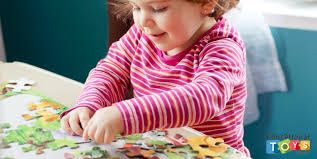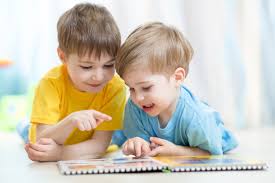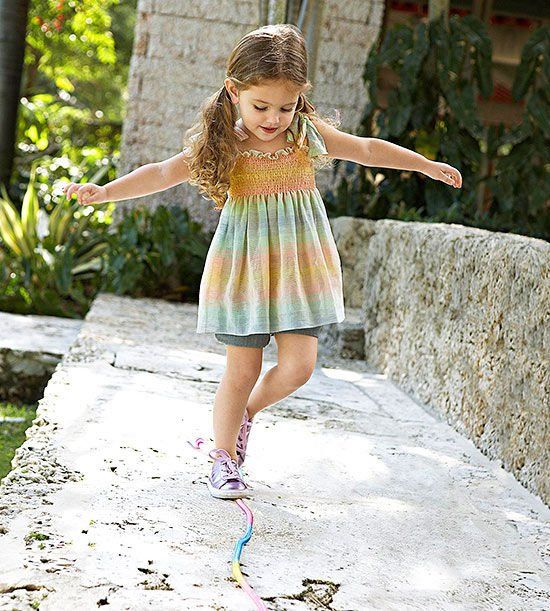The Childcare Specialists in Stanley
Curriculum
The early years' foundation stage (EYFS) sets standards for the learning, development and care set for your child from their birth to 5 years old. All schools and Ofsted-registered early years providers, such as Emeralds Little Gems must follow the EYFS, including childminders, preschools, nurseries and school reception classes.
The EYFS supports an integrated approach to early learning and care. It gives all professionals a set of common principles and commitments to deliver quality early education and chilcare experiences to all children. It also provides parents the confidence and reassurance to know that every childcare provider has the same statutory commitments and principles that will underpin their child's learning and development experience, where at Emeralds Little Gems we strive to make the best every day for every child.
For a more informative account of the EYFS (2017) & foundation years parent guide please click on the links below
Personal, Social & Emotional Development
Learning dispositions, Key Person, Caring attachments, Positive images, Help children to form friendships, Model behaviour and attitudes
Communication & Language
Adult-child interactive sessions
Rhymes, songs, puppets, stories / non-fiction, role playing exploratory boxes, Again Project
Physical Development
Gross motor and fine motor skills, Safe but challenging physical abilities indoors and outdoors; Use of outdoor environment, Healthy lifestyle, Woodland schools' Programme
Specific Areas of Learning
Literacy
- Sharing stories, puppets and story props
Recognising sound and letters- Print rich environment
- Opportunities for mark making
- Model reading and writing
Mathematics
- Solving real-life mathematical problems
- Initiate the children activities to explore mathematical concepts
- Indoor and outdoor environments
- Number rhymes, stories, games
- Construction and block play
------------------------------------------------------------------------------------
Special and unique child
Child Development - Competent Learner
- Created on what your children can do
- First hand meaningful experiences
- Play sessions intiated by children
Skillful Communicator
Enjoyable, high quality adult/child interactions: practitioners comment, explain, repeat, expand vocabulary.
Inclusive Practice
- Early identification and support.
- Partnership with parents and other multi-agency professionals
- Respectful attitudes and knowledge of different needs and cultures
- Accessible & enabling environment
- Visual timetable, signing
- Signs in home languages (EAL)
Keeping Safe
- Warm and responsive care
- Effective safeguarding policy
- Know dietary and medical needs
- Safe, secure environment; clear, consistent boundaries & routines
- Help children to learn to assess risks and how they can keep safe
- Support children to make their choices
---------------------------------------------------------------------------------
Positive Relationships
Supportive Learning
- Observe and listen to children
- Build positive relationships
- Act as children's "Play Partners"
- "Co-explorers / Co-researchers" and as "Facilitators" for Learning
- Model active listening
- Model being a learner and help children to reflect on their learning
----------------------------------------------------------------------------------
Enabling Environments
- Objective planning
- Observe, reflect on learning and development and plan next steps
- Document learning journeys
- Develop mind maps with the children to inform planning
- Track children's progress
- Two years old children's reviews
Supporting Every Child
- Individual learning journeys
- Plan appropriate, realistic experiences that match children's developmental needs and build on children's interests
- Differentiate experiences for those who need extra support or challenge
- Partnership with parents
The Learning Environment
- Warm, empathetic and supportive emotional environment
- Balance of indoors and outdoors
- Children involved in planning layouts, keeping everything tidy
- Flexible use of space
- Good quality / open-ended resources
- Communication friendly spaces
----------------------------------------------------------------------------------
Learning and Development
Play and Exploration
- Challenging skill based environment inside and outside where children's play can be supported and extended; open-ended resources and flexible spaces
- Observe, value and facilitate children's play, join in as play partners and co-explorers
- Support and extend communication
Active learning
- Individual learning journeys
- Accessible environment to promote choice and independent learning
- Give children time for sustained involvement in self chosen activities / investigations
- Staff challenge and extend children's thinking.
Understanding of the World
- Exploration and investigation, small world play, multi-sensory environment, natural objects
- Local walks / visits and visitors, Home links
- Cooking; Designing and making
- Range of ICT/Technology equipment
- Experiencing different cultures
Expressive Arts and Design
- Music, songs and dance
- Value Creativity and originality
- Exploring materials and tools
- Multi-Sensory experiences
- Imaginative play, role play dressing-up, art design, etc.
----------------------------------------------------------------------------------
Health and Well-Being
- Healthy snacks / meals
- Fresh drinking water
- Warm and supportive relationships
- Outdoor activities to feel the fresh air and benefit from exercise
- Balance of physical activities and restful activities
- Hygienic and healthy environment
---------------------------------------------------------------------------------
Respect Each Other
- Consult, listen to and value parents' and children's contributions
- Close co-operative team
- Circle time, stories to promote understanding and respect for different needs, views, cultures
- Help children understand feelings and build friendships
- British values
Parents as Partners
- Parents welcomed into activities
- Notice board for parents
- Newsletters
- Parents' contribution in learning curriculum / diaries
- Parents' workshops
- Open evenings / parent's evenings
- Dialogue and mutual respect
Key Person
- Key person gets to know the children really well, responds sensitively to their feelings, ideas and
behaviour and helps them to relax and feel secure and confident - Plan and assess for children's next steps
- Key person has regular dialogue with parents
- Support children's transitions
----------------------------------------------------------------------------------
The Wider Context
- Good communication with other local settings for smooth transition, support continuity of learning and consistency of care; reciprocal visits; shared activities
- Good links with health visitors
- Visitors from local community
- Activities using local environment
- Visits / Outing and visits to local schools
----------------------------------------------------------------------------------
Creativity and Critical Thinking
- Balance of adult-led and child-initiated activities
- Open ended creative resources always available for individual exploration
- 'Sustained Shared Thinking'
- Use documented 'Learning Stories' to talk to parents and children about learning process
Areas of Learning and Development
- Plans ensure all prime and specific areas of learning are covered; informed by children's interests and needs
- Holistic, cross-curricular experiences
- Underpinned by principles of EYFS
For more information on our curriculum, contact us on 01207 280 022



